#romanticising islam
Text
7 tips in getting closer to Allah SWT

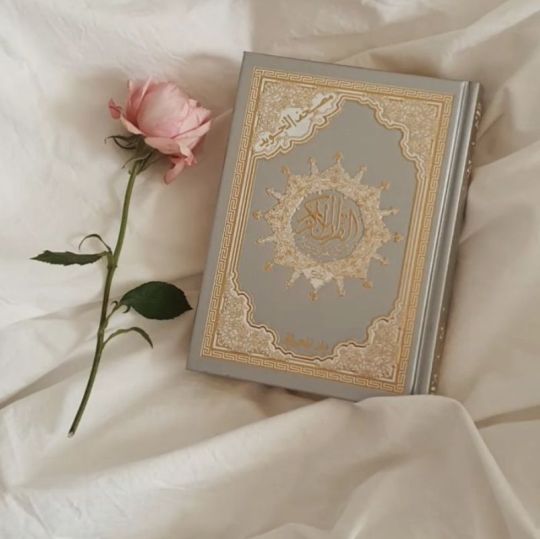

read the Qur'an everyday
reading the word of Allah and understanding what you are reading will make you feel close to Him as you know that this is not a Book that anyone has just written - it has come directly from Allah SWT. subhanallah. reading and understanding what He says will make you want to practise what the Qur'an says and, in turn, be closer to Him.
be around people who remember Allah
human beings have great influence on each other so it is important to have righteous people around you. their relationship with Allah SWT will inspire you to build and improve yours.
understand what you recite in salah
knowing what you are reciting will help you understand how many blessings you are gaining with just a single prayer. take time to learn the translation (if you do not speak/understand arabic) of what you are reciting and why.
learn Allah's 99 names and attributes
'And to Allah alone belong all perfect attributes; so call on Him by these' (7:181) Allah likes it when we call Him by his names and it is important to recognise and understand Him. think of Him as your friend: when you get to know someone better, you get closer to them. it is the same thing, in fact, better, with Allah SWT.
have secret good deeds between you and Allah
again, like having a friend, having something that is just between you and your Lord will make you feel closer to Him.
make lots of du'a - especially in sujood
having your dua's come true is the best feeling, especially when you have been praying for something for a long time, alhamdulillah. praying for anything, no matter how big or small, will make you feel closer to Him as you know that He alone will make everything okay and knows what is best for you.
remember death and prepare for it
this one can be very hard but it is important to remember that death can come at anytime so always try and do good deeds and live righteously in order to please Allah. when having this mindset that each day is a new chance to seek forgiveness and do good deeds, you will feel closer to Him by wanting Him to be happy with you.
#this is a journey and will not just happen overnight but that is the point of life! to keep trying every day to build our relationship !#may Allah be pleased with us all Ameen ☾#i love to think of Allah as my friend. whatever you think of Him that is Who He will be for you#islam#muslim#qur'an#islamic#muslims#sabr#righteousness#sabrgirl#tawakkul#trust in allah#zikr#quran#allah#tasbeeh#islampost#islamic reminders#romanticising#romanticising islam#islamdaily#quran or hadiths#hadith#allahﷻ#la ilaha illa allah#prophet
3K notes
·
View notes
Text
been looking at some images today, time for my wildly uninformed opinion. the difference between celtic and nordic knotwork is Like So:
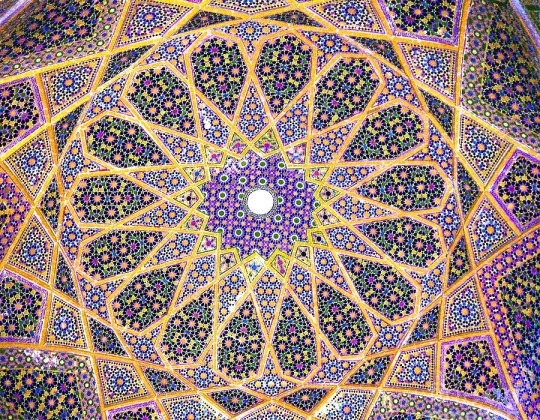
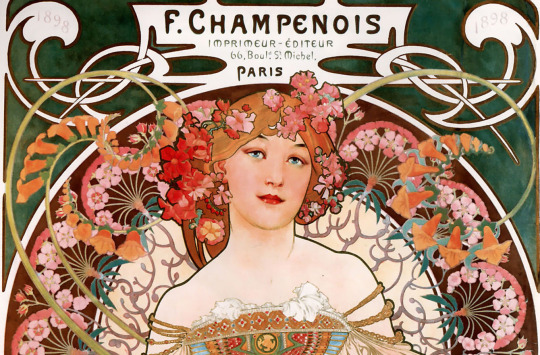
#thought of this in words then googled it and well. look at them. tell me i'm wrong.#nordic art prefers Beasts to people and you can find a beast or two in celtic art too. but like. by and large#like the OVERARCHING PRINCIPLES. like so!!!#tbh it's possible both had influences one way or the other#or at least like the celtic and islamic stuff came from the same principles. Divine Perfection.#i was always told celtic knots being endless symbolised eternity and therefore god. not sure if it's true but it wouldn't be surprising#and then on the other hand i can totally see people looking to viking age art for art nouveau bc it's all fairytale and romantic#and people love to romanticise the middle ages#but. i know literally nothing about art history. i am simply observing
5 notes
·
View notes
Photo

George W. Joy - General Gordon's Last Stand - 1893
Major-General Charles George Gordon CB (28 January 1833 – 26 January 1885), also known as Chinese Gordon, Gordon Pasha, and Gordon of Khartoum, was a British Army officer and administrator. He saw action in the Crimean War as an officer in the British Army. However, he made his military reputation in China, where he was placed in command of the "Ever Victorious Army", a force of Chinese soldiers led by European officers which was instrumental in putting down the Taiping Rebellion, regularly defeating much larger forces. For these accomplishments, he was given the nickname "Chinese Gordon" and honours from both the Emperor of China and the British.
He entered the service of the Khedive of Egypt in 1873 (with British government approval) and later became the Governor-General of the Sudan, where he did much to suppress revolts and the local slave trade. He then resigned and returned to Europe in 1880.
A serious revolt then broke out in the Sudan, led by a Muslim religious leader and self-proclaimed Mahdi, Muhammad Ahmad. In early 1884, Gordon was sent to Khartoum with instructions to secure the evacuation of loyal soldiers and civilians and to depart with them. In defiance of those instructions, after evacuating about 2,500 civilians, he retained a smaller group of soldiers and non-military men. In the months before the fall of Khartoum, Gordon and the Mahdi corresponded; Gordon offered him the sultanate of Kordofan and the Mahdi requested Gordon to convert to Islam and join him, to which Gordon declined. Gordon was besieged by the Mahdi's forces, Gordon organised a citywide defence that lasted for almost a year and gained him the admiration of the British public, but not of the government, which had wished him not to become entrenched there. Only when public pressure to act had become irresistible did the government, with reluctance, send a relief force. It arrived two days after the city had fallen and Gordon had been killed.
The manner of Gordon's death is uncertain, but it was romanticised in a popular painting by George William Joy — General Gordon's Last Stand (1893, currently in the Leeds City Art Gallery), and again in the film Khartoum (1966) with Charlton Heston as Gordon. The most popular account of Gordon's death was that he put on his ceremonial gold-braided blue uniform of the Governor-General together with the Pasha's red fez and that he went out unarmed, except with his rattan cane, to be cut down by the Ansar. This account was very popular with the British press as it contained much Christian imagery with Gordon as a Christlike figure dying passively for the sins of all humanity.
George William Joy (7 July 1844 in Dublin, Ireland – 28 October 1925 in Purbrook, Hampshire) was an Irish painter in London.
He was perhaps best known for his depiction of heroism in a painting entitled The Death of General Gordon, Khartoum, 26 January 1885 (1893; Leeds City Museum). Picturing a final moment in the very recent British history of the Siege of Khartoum, Gordon is pictured bravely facing his fate in the Governor-General's Palace, Khartoum, standing above the followers of the invading Mahdi army moments before being struck down by a spear.
57 notes
·
View notes
Text
I also really need non Palestinian Muslims to decentre themselves and religion. There is a line between admiring and/or honouring the unwavering faith of Palestinian Muslims we see on our socials and glorifying and romanticising Palestine and Palestinians suffering by a literal genocide in a wishy washy post about Muslims finally being free from the Dunya despite Palestinians not being free, like im begging this is not about you or us. If you can't interact or respond to the genocide of Palestinians without centering Islam as the only driving reason for your activism don't bother.
12 notes
·
View notes
Text
𝘸𝘰𝘮𝘦𝘯 𝘰𝘧 𝘵𝘶𝘮𝘣𝘭𝘳 [𝘢𝘯𝘥 𝘮𝘦𝘯 𝘵𝘰𝘰, 𝘴𝘶𝘪𝘵 𝘺𝘰𝘶𝘳𝘴𝘦𝘭𝘧 𝘪𝘧 𝘺𝘰𝘶'𝘥 𝘭𝘪𝘬𝘦 𝘵𝘰],
life is hard. and we all struggle, no one is an exception. some hide it well, some do not, that's the only marker differentiating us. but even so, we do our best to survive and live. we even romanticise it to get through if we have to.
but with menstruation, it is absolutely the opposite. we curse the phenomenon. believe me, it is not easy, i am a woman too. however, if Allāh made our bodies like that, then it is for a good reason. and i do not simply mean the ability to fall pregnant by that. while that in of itself is a miracle-that-has-lost-its-shine judging by how so many people tend to consider it to be a not-so-superheroic-deed, menstruation just is not limited to that.
i think as mature women of islam (or generally mature women) we must ensure that this narrative surrounding menstruation is changed. i, for one, find it very disturbing and disrespectful because we are told to respect the Qadr of Allāh, our destinies and all forms of trials and tribulations that we are made to go through but we somehow do not think twice about how we not only merely hate or dislike but also go as far as to curse that we menstruate (not generalising, but i have come across some who definitely crossed those limits).
i barely find anyone teach us about how we must be thankful for them. like we are thankful for life (on the good days) and how we tolerate and survive it with hope and expectation of rewards from Allāh (on the bad days).
we need to raise a healthier narrative, ladies. treat it like you would any other bad day. be patient. be wary of Allāh. be alert with shaitaan and his tactics.
even though it is painful and tiresome and challenging, it is both a gift and a test.
𝘕𝘢𝘳𝘳𝘢𝘵𝘦𝘥 𝘈𝘣𝘶 𝘚𝘢`𝘪𝘥 𝘈𝘭-𝘒𝘩𝘶𝘥𝘳𝘪 𝘢𝘯𝘥 𝘈𝘣𝘶 𝘏𝘶𝘳𝘢𝘪𝘳𝘢:
𝘛𝘩𝘦 𝘗𝘳𝘰𝘱𝘩𝘦𝘵 (ﷺ) 𝘴𝘢𝘪𝘥, "𝘕𝘰 𝘧𝘢𝘵𝘪𝘨𝘶𝘦, 𝘯𝘰𝘳 𝘥𝘪𝘴𝘦𝘢𝘴𝘦, 𝘯𝘰𝘳 𝘴𝘰𝘳𝘳𝘰𝘸, 𝘯𝘰𝘳 𝘴𝘢𝘥𝘯𝘦𝘴𝘴, 𝘯𝘰𝘳 𝘩𝘶𝘳𝘵, 𝘯𝘰𝘳 𝘥𝘪𝘴𝘵𝘳𝘦𝘴𝘴 𝘣𝘦𝘧𝘢𝘭𝘭𝘴 𝘢 𝘔𝘶𝘴𝘭𝘪𝘮, 𝘦𝘷𝘦𝘯 𝘪𝘧 𝘪𝘵 𝘸𝘦𝘳𝘦 𝘵𝘩𝘦 𝘱𝘳𝘪𝘤𝘬 𝘩𝘦 𝘳𝘦𝘤𝘦𝘪𝘷𝘦𝘴 𝘧𝘳𝘰𝘮 𝘢 𝘵𝘩𝘰𝘳𝘯, 𝘣𝘶𝘵 𝘵𝘩𝘢𝘵 𝘈𝘭𝘭𝘢𝘩 𝘦𝘹𝘱𝘪𝘢𝘵𝘦𝘴 𝘴𝘰𝘮𝘦 𝘰𝘧 𝘩𝘪𝘴 𝘴𝘪𝘯𝘴 𝘧𝘰𝘳 𝘵𝘩𝘢𝘵."
[ 𝘚𝘢𝘩𝘪𝘩 𝘢𝘭-𝘉𝘶𝘬𝘩𝘢𝘳𝘪 5641, 5642, 𝘉𝘰𝘰𝘬 75, 𝘏𝘢𝘥𝘪𝘵𝘩 2 ]
Allāh expiates some of your sins even if you were pricked by a thorn. imagine how many sins he must forgive of yours when you deal with all the issues that come along with menstruation? Subhan'Allāh.
Allāhu Aa'lam.
8 notes
·
View notes
Text
yeah I really think you should read your own books and not romanticise concepts but okay (quickly)
New Age is Satanism according to some of the proponents of the later (including the main one, Aleister Crowley)

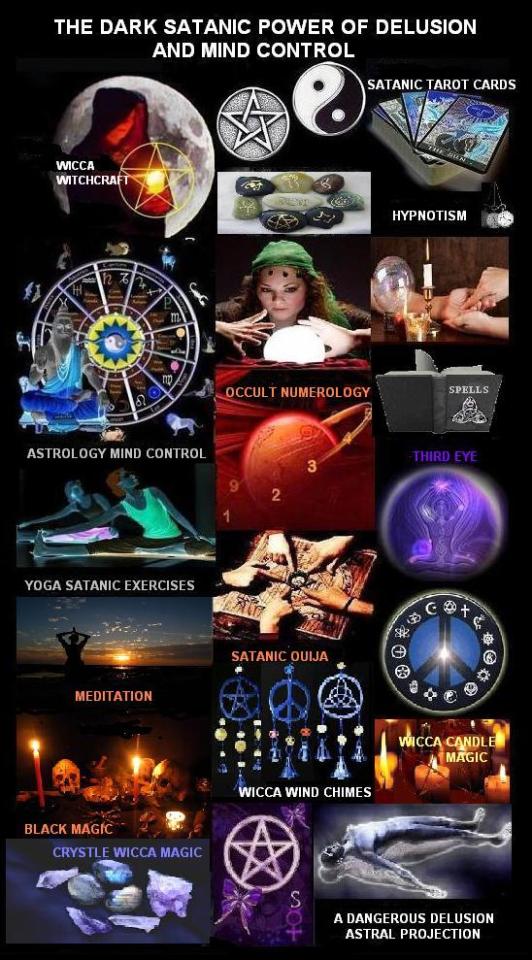
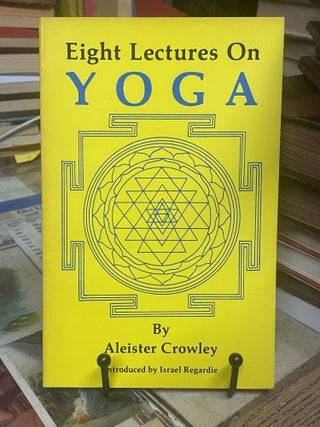
and there's a few more concepts they have in common, like how they look at the Pleiades for guidance reasons
or as Crowley noticed, Yoga too, is identical
(I can't find his notes on google right now but yeah, he makes a very convincing point when he puts them side to side: only the name is missing eventually)
---
so I studied a lot of occult books, religions (Buddhism, Islam, Hinduism) and I think the habit started with reading mythology when I was younger. pagan and sacred stuff are mentioned in The Devil and all his works (it's a very neat book if you don't want someone sidding with Christianity necessarily and just making a whole summary of all the pagan shit you've ever seen in your entire life - and didn't quite know WHERE it comes from originally)
---
i.e. voodoo and zombies have origins in Haiti but why? cause they were poor
and I commend the author for noticing that poverty levels are linked to beliefs in the occult (like in Europe, during the Great Inquisition)
(but I was a little annoyed he didn't notice the iconography for several pagan religions is identical: in Africa they're identical to Mesoamerica and eventually Buddhism - which is like: HOW THE FUCK did that happen when they're so far apart?)
and I have noticed he doesn't care much for the little tribe - as he calls it - in the middle of nowhere that started Christianity - the Jews; which is like, whatever!)
---
anyway, the point being, I did a lot of research into all the concepts out there (that involve spiritual aspects) - but with the right authorities of the subjects in mind
and Andreea has a tendency to believe impossible things:
in ghosts, in witches (like during the Great Inquisition)
in aliens (she almost joined a cult because of that and stalked and talked to its local leader)
and lastly, a bunch of concepts that she doesn't understand the origin of (they're New Age, all of them and she has no clue what they're for!)
---
So I do research in this quite a lot... (I know about this side because it opposes my Christian concepts too, so Idk that's just who I am, I get really informed)
I think we might have sent an outer body experience (that is a big deal in New Age whatnot AND for witches during the Great Inquisition - that's where the whole thing with them jumping on brooms and flying comes from in the first place - that slipped in the media!) Cause Andreea was talking about that and about having a shared dream with someone! Like what?!
Yeah, it's a pretty common thing I can do as God: send outer body experiences! It's not difficult at all! It's a thing!
---
Anyway, Andreea's not Christian and she's just looking for alternatives to make herself feel better about her pathetic life etc.
But after all that research, I noticed patterns about how there's no real Abrahamic religious division left (after all these years of random concepts and polytheism):
There's either transcending your own self (you're your own god)*
or believing in God (an external individual)**
---
*Buddhism, New Age, Satanism goes in here (etc.)
there's a Venn Diagram here for Islam and Judaism
and lastly, **no independence or god self left in Christianity
0 notes
Note
Re: your alter ethnicity and names question: No, because those alters are not that ethnicity. They are still the body's ethnicity, and can only speak for the body's experiences. Alters of a different race or ethnicity are only your brain's approximation of what you think that experience is like, via exposure through people you know, things you've watched and read, etc. imo it's like the equivalent of a non-indigenous person using an "indigenous name" and trying to appropriate cultures that they aren't part of and don't understand.
hm, thats an interesting, scientific point of view. thanks for your contribution ^^
my culture is distinct enough to not be considered common white european culture and tbh I wouldnt mind if a turkish alter wanted to use a turkish or islamic name. tbh thatd be sick (names like Aslan are Kurt are already turkish in origin and I get excited when I see it get used.)
though I get it can be different for bodies of different ethnicities, especially those who have been romanticised, exoticised or have been through a genocide.
1 note
·
View note
Text
Shirin Neshat
Shirin Neshat(March 26,1957) is an Iranian visual artist known for her film and photography work, dealing with the contrast between Islam and the West, femininity and masculinity, public life and private life, and antiquity and modernity. She was born in the religious city of Qazvin to wealthy parents, growing up in a “very warm, supportive Muslim family environment.”She learned her religious values from her grandparents. Neshat had said that her physician father “fantasised about the west, romanticised the west, and slowly rejected all of his own values: both her parents did. What happened, I think, was that their identity slowly dissolved, they exchanged it for comfort. It served their class.” Neshat was enrolled to a Catholic boarding school in Tehran. In 1975, she left Iran to study at the University of California where she got an MFA. In 1983, Neshat moved to New York City where she met and married an owner of an alternative space. She was intimidated by the art scene there and believed the art she was making wasn’t substantial, therefore destroying lots of her early works. In 1990, after the death of Iran’s supreme leader, Neshat returned to Iran. "It was probably one of the most shocking experiences that I have ever had. The difference between what I had remembered from the Iranian culture and what I was witnessing was enormous. The change was both frightening and exciting; I had never been in a country that was so ideologically based. Most noticeable, of course, was the change in people's physical appearance and public behavior."
Neshat’s early work was self-portraits of her wearing the chador(veil) which was required for women living in Iran. Her work was never shown there. Many of her works combines images of women with written words taken from religious texts. She said that she hopes viewers of her work “take away with them not some heavy political statement, but something that really touches them on the most emotional level.” Since Iran has undermined basic human rights, particularly since the Islamic Revolution she has said that she has "gravitated toward making art that is concerned with tyranny, dictatorship, oppression and political injustice. Although I don’t consider myself an activist, I believe my art – regardless of its nature – is an expression of protest, a cry for humanity.” While the themes she explores don’t relate to my project, aesthetically the work inspires me.
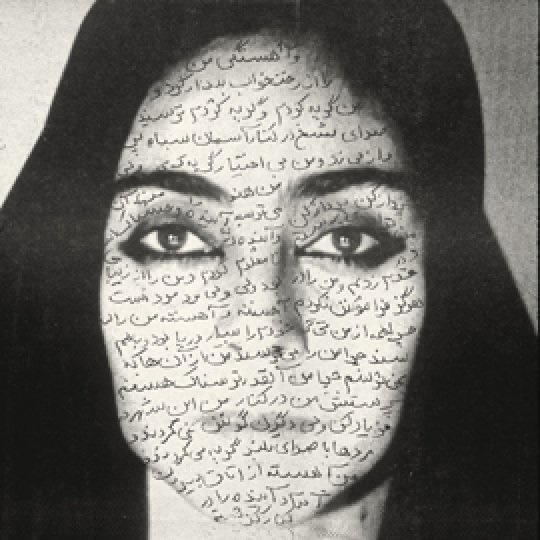

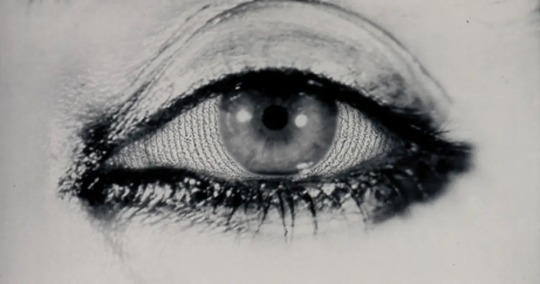
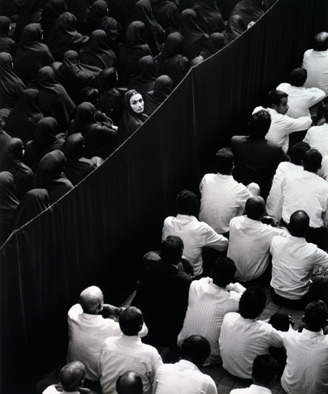
0 notes
Photo

"This place, Mombasa, is overrated" I found myself saying to an out-of-towner friend I was touring my hometown When a whiff of wind, their body slicing through it Held the edges of her lips Bedraggled—and contortioned it into a smile. And as she stared listlessly ahead to a hot sun cooling, Recoiling into the edged-depth of the Indian ocean and agreed, I surprisingly found myself defensive over what I myself initiated "I know," she had said, "Mombasa used to be the say all and be all, but what I see is just...this." And as she motioned her hand alluding to the scabbishness of my little town I got off the rails and gave the view my back And we walked away from Mama Ngina drive. "But it's only overrated if you're poor," I found myself saying And we laughed, as we walked back home Through the dimlit cobbled streets Reminisce of a pre-Islamic Andalusian town. If I'm honest, I could see people romanticise it. Like Italy, or Croatia, or a white and blue suburb of Santorini I could see people gushing at the old architecture in Old Town, that unfolded meticulously with the malnourished snaking roads marvelling, lost, transported to a simpler time I could see them wanting to carry a piece of home with them Take a picture for a postcard and show it to their friends I could picture people welling with pride boasting about having set foot here, Stepped in history I could see them immersed in the culture Non-tokenous And call it everything but the derogatory 'cute' I could see that but I guess I don't look at it for what is In search of skylines, and bungalows, and Chinese food In a place that must be left anything but I'm in want of rewriting a narrative that isn't ours That I resort to telling people to lower their expectations here Of my home Before they form opinions I have to tell them, there isn't much to look at. (at Xanadu Beach Villa) https://www.instagram.com/p/CfEQ9H9s1QZ/?igshid=NGJjMDIxMWI=
0 notes
Text
Ugh sometimes I hate to see what the woke 'culture' has become, especially when it's young people desperately trying to conform to it. I've just seen someone reblog a post about not eating meat saying that 'not eating meat is great and it's so important for the environment and animals!! But obviously if your culture makes you eat meat don't stop it's beautiful!!' word for word.
Generally speaking, this kind of rhetoric much too often implies that 1) only white cultures are oppressive 2) non-white cultures are this kind of poor, cute wee curiosities we should protect at all cost and in fact be very patronising about 3) culture and traditions are a valid reason for adopting oppressive behaviors and unethical lifestyles, an argument which is seen by all as completely invalid in the Western World but retains all its legitimacy when it isn't about white people.
This is not as progressive as you think, and very ignorant of... The world's history outside of Europe, basically? It is right and legitimate to criticise non-white cultures, it is right to think one's culture is never a justification for any kind of oppression. What isn't right is to think people all have a similar mindset and relationship with their environment; to think people all have the same possibilities and motives, to think people all have the same power to act, or the same responsibilities. But these considerations should always be examined, they are not inherent to the discussion of cultural differences. As someone who grew up in a half white, half East Asian culture, I am tired of hearing non-white cultures being talked about as exempt from 'white' moral or ethical considerations, under false pretexts of tolerance and amendment for the past; exempt of any change and capacity to change for the better, and being pushed out of debates because 'not all cultures have the same ideas of morals, and social justice movements do not take their roots in the same reflections, etc'. Instead of actually opening the debate, be it on feminism or LGBTQ+ rights or veganism, while recognising and taking into account one's cultural background, the discussion doesn't take place, or only takes place (and I am not saying this is not right, but this is limited) when white people are/were responsible for local oppressions through cultural means. As a child of recent colonial history, of 'both sides', I have learnt about the Western European influence in Asia my whole life. I have also seen, my whole life, oppression and discriminations in these countries that are deeply cultural and have nothing to do with white people. Those aren't discussed except by local activists. I guess all I want to say is, while recognising you are privileged, while understanding your country's history is one of terrible oppression and your standards may not be those of other people, refusing to criticise or campaign against some things because they occur in non-white cultures (non-white cultures! Four continents and hundred of countries! Is this vision of the world even right? Or is the wokeness very fond of not going further than the oppressors vs oppressed rhetoric?) isn't progressive at all. This isn't where you should be careful.
I was once told criticising sexism in Cambodia and in Buddhism was racist and anti-religious. I was asked to just shut up and 'know my privilege'. Meanwhile, there were plenty of discussions about the Church, it was and still is called out for its actions. You know what this is? Under the pretext of knowing your place and privilege, we refuse to have an open debate on things that aren't culturally white. This I have seen in all kinds of social justice areas. The fact something must be done, and discussed with the people in question, discussed differently, doesn't mean it must not be discussed. Raising awareness and imposing one's views is not the same. I understand this is well-intentioned, but the way I see it, such black and white mindset only has one result - oppressions and discriminations in the Western World can be talked about, but what happens anywhere else, if unrelated to it, cannot be, or is talked about but with much more difficulty and misplaced conciliation.
#And before you come at me don't mistake 'culture and traditions' for survival#Especially tired to see the vegan discussion isn't allowed when talking about Asia EVEN THOUGH it literally takes most of its roots there#Similar thing for women's place in Islam or Buddhism which are often glamorized and romanticised#My grand mother is now the first woman in our region and in her pagoda in Phnom Penh to direct prayers after fighting against prejudices#Should I have not encouraged her because her culture is beautiful?#Anyway this post is for woke 15 years old#Think critically#Oh and stop thinking because you aren't white you are systematically poor. I'm tired of reading this as well.#Sometimes I wish I could discuss some things about my second culture and home country without people immediately saying that it's because#of colonialism. There is so much that is because of colonialism. But what you are saying is these people don't have the right to be flawed#As well or to their own culture#Or if they had one it was completed erased by white culture#And that is not true. It's not. Sometimes things aren't about Europe or America and we shouldn't be ashamed to say so as well.
12 notes
·
View notes
Text
Ja’far ibn Yahya’s palace
"Abū l-Qāsim ʿAlī ibn ʿAbd al-Raḥmān informed me—citing Abū Muḥammad ʿAbd Allāh ibn al-Khashshāb the grammarian, with his permission, who cites Abū l-Qāsim al-Rabaʿī, citing the supreme judge Abū l-Ḥasan al-Māwardī, who cites Abū ʿAlī al-Azdī, who cites al-Jammāz—that Abū l-ʿAynāʾ related the following:
Jaʿfar ibn Yaḥyā the Barmakid was very attached to his friends and enamored of his singing-girls. He gave free rein to his pleasures and regularly scheduled days of revelry and dalliance. This became so excessive that he became notorious and tongues began to wag.
His father took him aside and reprimanded him in private for his conduct. “If you can’t enjoy your revelry and drink discreetly and keep your antics hidden,” he said, “then build yourself a palace on the East Bank where you can get together with your drinking companions and singing-girls. Over there, out of the public eye, your time can be your own and your affairs can remain largely hidden from the court. This will stop people talking, put an end to the rumors, and raise your standing with your sovereign.”
So Jaʿfar built a palace of vast proportions on the East Bank, with a large open court and a garden full of fruit trees of every kind. He poured great sums of money into it and employed an army of laborers and craftsmen to work on it.
When it was almost finished, he took his friends out to see it, among them the shrewd and clever Muʾnis ibn ʿImrān. Jaʿfar walked around the palace and found it to be superb. All his companions raved about how wonderful it was, except for Muʾnis, who was silent.
“What’s wrong?” Jaʿfar asked him, “Why aren’t you saying anything?”
“About what?” replied Muʾnis.
“About what everyone else is talking about!”
“They’ve said it all; I’ve nothing to add,” said Muʾnis.
Jaʿfar was astute enough to realize that there was something behind Muʾnis’s words, and asked him pointedly, “But what do you have to say?”
“No, really,” replied Muʾnis, “it’s as they’ve said.”
“I demand that you speak!” Jaʿfar ordered.
“Since you insist I say something,” said Muʾnis, “can you handle the truth?”
“Of course I can,” replied Jaʿfar.
“It needs to be in private.”
When they were alone, Muʾnis asked, “Do you want the long version or the short?”
“Give me the short version,” Jaʿfar said.
“Imagine going out right now and finding that one of your own entourage had built a palace more or less like this one. What do you think you’d say? And how do you think you’d react?”
“Point taken,” said Jaʿfar. “What should I do?”
“What I’m going to suggest, you must do immediately or else it’ll be too late.”
“Which is?” asked Jaʿfar.
“I have no doubt that the caliph has been asking for you and been told that you’ve gone out to your palace. He’s probably annoyed with you for staying away so long. Stay a while longer, then rush to his palace and appear before him with your clothes still dusty. When he asks what you’ve been up to, say, ‘I’ve been out at the palace I’m building for al-Maʾmūn,’ then use your own discretion.”
Here our source, Abū l-ʿAynāʾ, notes that Jaʿfar’s palace had three hundred and sixty rooms, including formal sitting rooms, balconies, bedrooms, rooms furnished with dampened canvas sheets to cool the air, and storerooms. Jaʿfar had sent away for sets of rugs and cushions to be procured from every corner of the empire, all custom-made to fit each separate chamber. There was no end of talk and speculation about the building and the furnishings that had been ordered for it.
Cutting short his stay, Jaʿfar hurried off to see al-Rashīd, who asked him where he had been and what he had been doing.
“I’ve been at the palace I’ve built on the East Bank for my master, al-Maʾmūn,” he replied.
“Oh, you built it for al-Maʾmūn, did you?” Hārūn asked.
“Absolutely, Sire,” he replied, “because on the night he was born, you honored me by placing him in my lap before placing him in your own, and honored me by making me his servant. Knowing full well how dear he is to you, I was inspired to build a palace for him on the East Bank, where the climate is moderate and the soil very good. It has flowering gardens and flowing streams and is far from noisy crowds, noxious vapors, and nasty smells. His nursemaids, wet nurses, housemaids and housekeepers can all live with him. There, his humors will be balanced and he will grow up healthy, clear-minded, pure-hearted, and intelligent, and he will develop superior understanding, a good complexion, and strong limbs. What’s more, I’ve sent away to all the provinces for custom-made furnishings, though there are still a few items I haven’t been able to obtain. I’m hoping I can rely on the caliphal treasury for a loan, or a gift. . . . ”
“A gift, of course!” said al-Rashīd. He then parted the curtain and faced Jaʿfar directly. “God forbid that anyone falsely accuse or slander you! May people only praise and honor you! You alone shall occupy that palace, by God! And we alone shall provide the remaining furnishings.”
Al-Rashīd’s suspicions were allayed by this ploy. Jaʿfar got to keep the palace and rumors about him ceased. He went there whenever he wanted to revel or relax, and continued to do so until the caliph al-Rashīd deposed the Barmakids and they fell from grace. Until that time, it was known as the Jaʿfarī Palace.”
From Consorts of the Caliphs: Women and the Court of Baghdad by Ibn al-Sa’i, translated by Shawkat M. Toorawa
#ja'far ibn yahya#barmakids#bullshitting it like a pro as usual#because as usual he has to fear his batshit caliph cutting his head off#i don't get why people romanticise it or even ship it bc jfc#persia#the golden age of islam#reference#but at least this is good data on his palace#harun moved into it eventually#bc his own palace was crap in comparison#i love how it became a legit 1001 nights trope#that yahya constantly had to tell ja'far and fadl to stop partying so hard#or at least do it in secret#and this is a medieval story but it already has a classic 1001 nights format#ah the classic genre of 'ja'far fearing for his life bc harun is a nutjob'#if you read enough of these you'll know why i made fic!jaffar the way he is#turned nuts/evil simply by harun's crazy and later chilled somewhat with yass's help#you too would deliver the 'menn are eevill' speech after surviving an abusive boss like this
2 notes
·
View notes
Text
Tell me, would anyone else of my mutuals here love to live in austria? Or just your impression of austria as someone from another country
Because i know some people here in the ski jumping family who would love to live in austria so much ... i mean sure there are nice things about austria but i feel like they have this romanticised view of my country. 😅 It's far from everything great
#one of them a friend of mine... she even has austrian by heart in her insta bio#she's also a big gregor fan so i wonder if it just comes from that ahah#but you can just be a fan of him without loving austria 'for' him 😅#also no front to them or anything it's quite normal to romanticise a country you don’t know well enough#and if you see this and love living in austria as an austrian good for you#just if i could choose a country i'm pretty sure i wouldn't choose austria 😅#but what i mean with things that are not great i think we have a pretty big racism problem#tho that also is a problem everywhere ig#it just feels like very big here#and our politics lately...#austria is one of the few countries in europe refusing to take any refugees at all#also you might have heard the islam map#i can't really explain that well enough but look it up#it makes attacks on muslims much easier hence knowing their location#this is pretty awful and embarassing for a country like mine to have#no other country in europe has that#(also tbh idk if they now stopped that or if it's active again but just that it even happened is bad enough)#i'm also just curious to hear an outside perspective
0 notes
Text
I really just wanna see more (any really) dark academia aesthetic based off Islamic countries because they never get any love but their scholarly pursuits fueled the world back when Europe was too small to notice, I wanna see academia aesthetic from Egypt where the library of Alexandria was once the greatest in the world, from Asia where the countries thrived before colonisation
I just wanna see dark academia from not romanticised Britain or Europe for once
#none of the dark academia ever has any connection with the current Britain#it's all just a romanticised version of past Britain#but there are more academic hubs then Europe#and some of them had more to their name#seriously just look up Islamic scholars in historical Africa and tell me you aren't impressed
0 notes
Text
"Sometimes I really hate Americans"
that is the post I wanted to make yesterday in the middle of the night, but that is not true. I don't hate Americans, I do not know many of them, but you seem okay and I have nothing against you.
It's just that I'm tired.
I'm tired of the us-centric view the internet holds and how it sometimes seems that the USA forgets the rest of the world exists or is not also the USA but then in a different spot.
While the USA has made itself important, the world isn't all centered around it. You're problems might not be my problems and my problems might not be yours.
I know that as I make this post, I make it from a place of privilege.
I am not black, nor islamic, nor jewish, nor Roma, nor disabled. I live in West Europe, my parents are middle class and they are fully supportive of my queerness.
So I cannot make appeals on their part and I know their struggles are global, so in the USA as well as in Europe and the rest of the world we need activism for them, and I'm not trying to undermine them.
I'm also not saying that none of the USA's problems are relevant here, but I am saying that the USA's problems are more advertised everywhere. Like how I know so much about Stone Wall and hardly anything about how I got my rights, to the point that Pride overtakes those voices that fought for me.
In the years 2016-2020 I saw the US president more than my own prime minister, even in the pandamic. I know more about USA politics than those in my own country and I can argue more for changes in America than here.
And it is good that those problems are being talked about. I love learning about what I can do to help and it's good to educate yourself. It's just that American activism isn't something each country can import.
I know that if I make an awareness post for an American issue it will get more attention than if I post about the leader of our growing fascist party comparing his racists and homophobic texts with saying you dislike snow while you actually like snow.
I know that it's harder to start up conversations about the prejudice in west Europe about eastern Europe even though the word slave most likely comes from Slav due to the amount of slaves captured from there during the Carolingian era. And the cold war had a massive impact on the relationship between the two sides, not just between Russia and America.
I know the Wall was a big thing and what's happening on the border betweenthe USA and Mexico is terrible, but I see post that romanticise European borders, completely ignoring how Europe is trying to keep out so many people who are fleeing from wars we contributed to.
I know that smaller issues in America get more attention than bigger issues elsewhere, a gap that is more apparent when it's not an European country.
That's just how it is.
But that's not how it should be.
This post is not made for you to feel guilty, you are watching out for yourselves in an environment catered to you.
However, this post is meant as a call to every American. A call to ask yourself: am I as educated about the issues of other countries as I expect them to be of mine? Do I assume people are American? Will I be less invested in the issues when they're not American?
It's not your fault for your mindset, but I have had so much stress over American politics on top of my worries about my own country and I would like Americans to realize that their issues get highlighted more than others.
We don't make Americans are dumb jokes because we think that, but just because your mistakes get the most attention.
Just be kind and look to help others, I think that's what I want to motto of this post to be. Be kind and advocate for everyone, everywhere
TL;DR: The internet is an us-centric place and that can be kind of annoying when not American. Try to think of your non-American neighbors on this platform and learn about their issues too :D
#politics#america#america centric#us centric#usa#i do not know how to tag this to reach people#but i will try#activism#lgbt activism#immigrants#boost#is that a good tag?#idk#i don't want to tag things such as blm bc theyre tag is important#and I don't want to swap it#feminism#equality#europe#all that jazz#just don't think of just america
339 notes
·
View notes
Photo

“The romanticisation of the historical Turkish drama “Magnificent Century” is disturbing, can you even imagine the outcry if American media did the same with their slave trade? These women spent their whole life enslaved, forced to convert to Islam, treated like cattle, and any son they had ended up being killed by an older half brother. It’s not romantic, it’s not “girl power”, and it certainly is not something to be look back to in pride.” - Submitted by Anonymous
46 notes
·
View notes
Text
twitter muzzies romanticise arranged marriage so much to the point where it’s not even islamic anymore lmfao there is nothing pious or smart about a guy you don’t know anything about going to ur father to arrange ur marriage. you are *supposed* to know ur partner before marriage lol how else are u to know of their true character
18 notes
·
View notes